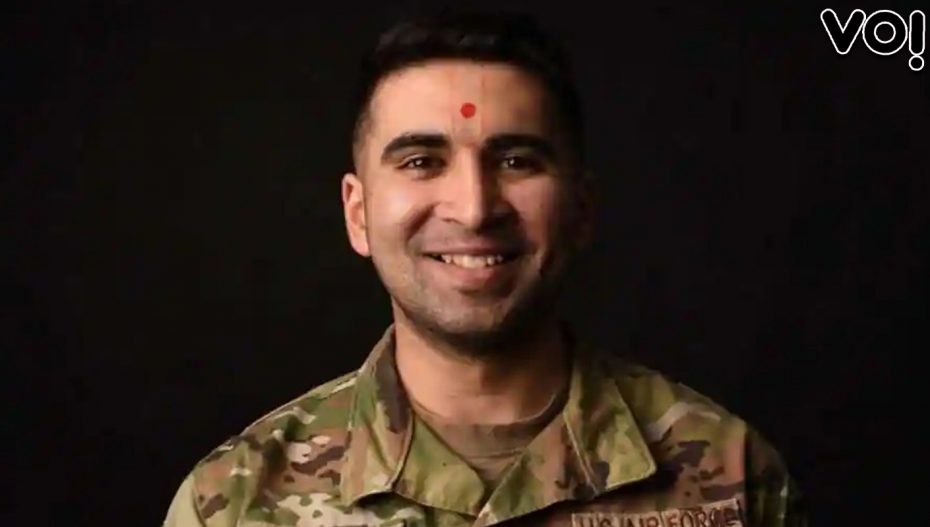A Hindu by birth, Darshan Shah has sought religious waivers to wear a tilak as part of his uniform, since starting basic military training in June 2020. He was nominated again two years later, on 22 February. Shah is an aerospace medical technician assigned to the US Air Force’s 90th Operational Medical Readiness Squadron. Shah works as an aerospace medical technician at the airbase.
While ecstatically sharing this information Shah said, “Wearing the Tilak Chandlo every day to work is amazing, to say it in one word.”
“People around my workplace are giving me handshakes, high-fives and congratulating me because they know how hard I’ve tried to get this religious accommodation approved”, he added.
He further added, “It’s who I am. Wearing it (the tilak) is special. It’s my way of getting through hardships and difficulties in life. It provides me with guidance. It’s given me a load of great friends and an overall understanding of who I am in this world.”
According to the sources, it’s a big win for Shah as this step will help to combine ‘both of his main identities’. He’s fought against the waiver. He first made this request when he was training at a boot camp, but was asked to wait until tech school to pursue it. There he was told to wait until his first duty station.
The airman has also expressed is grateful to live in a country that allows him the freedom to express his religious identity and religious expressions. “We live in a country where we’re allowed to practice and have faith in what we want,” said Shah. “That’s what makes this such a great country. We’re not persecuted for what we follow or believe. If it wasn’t for the first amendment, I wouldn’t be able to do this at all. I wouldn’t be able to be who I am while being a military member or even a citizen.”
Shah grew up in Minnesota, along with his parents and sisters. As a kid, he use to pay a visit to a temple every Sunday. He was three-year-old when he moved with his grandparents to Gujarat which further ignited his interest in the roots of Hinduism.
“My grandparents had a big influence on my religion,” Shah was quoted as saying in the press statement. “They taught me a lot about religion, festivals and customs. I would definitely say they had a positive impact on me. Not only with my religion, but with my mother tongue, my language, which is called Gujarati.”
Turbans, hijabs, beards allowed in the US Army-
This is not the first tie the US armed forces have shown their empathy towards vivid religions and cultures. Earlier, On January 03, 2017, the army issued a new regulation that permitted service-persons to wear turbans, hijabs, and beards. Reportedly, according to these new rules religious accommodations are to be approved at the brigade level. Previously, it was at the level of secretary of the army.
“This is major progress, not just for the Sikh-American community but for our nation’s military. Sikh-Americans love this country and want a fair chance to serve in our country on equal footing. Today’s announcement will help do just that,” Congressman Joe Crowley stated in 2017.
“We are a stronger nation, with a stronger military because of our respect for religious and personal freedom,” he had said.
In the past, Sikhs and other members of the military had to be granted a limited accommodation to serve in the armed forces while maintaining their articles of faith.
In almost every case, such accommodations had to be renewed after each assignment and were neither permanent nor guaranteed. The service members were forced to remove their articles of faith while their accommodation requests were pending, putting them in a difficult position of having to pick between their faith and their jobs













